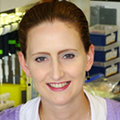This Focused Meeting was jointly hosted by the Microbiology Society and the British Mycological Society. It took place at the Mercure Exeter Rougemont Hotel, Exeter, UK.
Fungi display dynamics in all aspects of their biology, ranging from the control of intracellular motility to their migration across ecosystems. This meeting aims to celebrate the dynamic nature of fungi and provide an overview of some of the most cutting-edge current research in fungal biology. Initially the meeting will focus on the dynamic processes involved in the cell biology of fungi, and during the development and control of their cellular differentiation. The meeting will then concentrate on the dynamic nature of fungal pathogenicity, at both the level of host invasion and global movement of pathogens, before focusing on the dynamic nature of fungal genomes and their evolution and adaption. Finally, the meeting will explore how mathematical modelling can be used to explain the dynamic nature of fungi.
Organising committee: Steven Bates, Gero Steinberg, Sarah Gurr, Ken Haynes, Ivana Gudelj, Tom Richards, David Studholme and Nick Talbot (all University of Exeter, UK).
Key topics:
Approved by the Royal Society of Biology for purposes of CPD, this event may be counted as 73 CPD credits.
If you have any questions please email [email protected]
Follow us on Twitter @MicrobioSoc
Updates on The Dynamic Fungus can be found using the hashtag: #DynamicFungus
Image: Gero Steinberg.
Abstract submission has now closed.
Poster abstracts for this meeting can be downloaded below. However, a printed poster abstract book will also be available to collect from the registration desk onsite. At the meeting, posters will be presented in the breakout area.
For tips on how to best prepare a poster or oral presentation please click on the following links:
What is included in your residential registration fee?
*A booking code will be sent to you a week after registering. It will be your responsibility to contact the hotel to book your required nights.
The Society offers funds via the Conference Grant schemes to support the attendance of members at all stages of their careers:
The closing date for applications is Monday 25 July 2016. See the relevant pages for further details including application forms and full terms and conditions.
Book before Monday 25 July to take advantage of the early bird rate.
|
Type |
Early bird rate |
Rate after 25 July 2016 |
|
Microbiology Society or BMS Full Member – residential (SOLD OUT) |
£380 |
£400 |
|
Microbiology Society or BMS Full Member – non residential |
£200 |
£220 |
|
Non-member. Affiliate Member, International Associate Member (not UK and Ireland) - residential (SOLD OUT) |
£480 |
£500 |
|
Non-member, Affiliate Member, International Associate Member (not UK and Ireland) – non residential |
£300 |
£320 |
|
Full concessionary member/Student member - residential (SOLD OUT) |
£280 |
£300 |
|
Full Concessionary Member/Student Member – non residential |
£100 |
£120 |
Upon registration you should receive an automated confirmation email. Please contact [email protected] if after 48 hours this has not been received.
If you need a letter of invitation for a visa application, we will be happy to supply this after we have received full payment.
To find out if you need a visa to visit the UK, please visit the UK visa and immigration website.
Please note that all conference delegates are responsible for their own travel and visa arrangements; the Microbiology Society will not take any responsibility for travel or visa problems.
All registration fees must be paid in full BEFORE arrival at the conference. Any outstanding registration fees must be paid before admittance will be granted to the conference.
Refunds will not be provided.
Substitutions of attendees can be made at any time by contacting. [email protected].
TBC
TBC
 Fordyce Davidson
Fordyce Davidson
Fordyce is a Professor of Mathematics and, until recently, Dean of the School of Science and Engineering at the University of Dundee. His research interests lie at the interface between the analysis and applications of differential equations, with particular emphasis on applications to biological systems. He is interested in studying how complex interactions between cmoponents within a given system can lead to a coordinated (emergent) response in space and/or time. He mainly works on modelling multi-scale morphology and function of microbial communities, but also has an ongoing interest in modelling aspects of cell biochemistry. He is a Fellow of the Institute of Mathematics and its Applications, and is a past Vice-President of the British Mycological Society and a BMS Berkeley Award Prize winner. Fordyce has led a variety of outreach events over the years and has contributed to the successfull Dundee student iGEM teams over the past five years.
 Martin Egan
Martin Egan
Martin performed his graduate work in the Talbot lab at the University of Exeter, where he studied the role of NADPH oxidases in infection-related morphogenesis by the rice blast fungus, Magnaporthe oryzae. Following this, Martin joined the Reck-Peterson lab in the Cell Biology Department of Harvard Medical School, where his postdoctoral research was geared towards understanding the regulation of microtubule-based transport, using the filamentous fungus Aspergillus nidulans as a model system. Martin has recently started his own lab at the University of Arkansas, in the Department of Plant Pathology, where his research is focused on revealing how fungal pathogens co-opt plant cells to establish disease.
 Rhys Farrer
Rhys Farrer
Rhys' research uses high-throughput/next generation sequencing technologies to study the patterns of genomic, transcriptomic and gene-regulatory variation between and within populations of microbial pathogens. Rhys received his PhD in Clinical Medicine in 2013 from Imperial College London, studying the emergence, epidemiology and evolution of Batrachochytrium dendrobatidis, which is a major cause for global amphibian declines. After his PhD, Rhys was awarded a Wellcome Trust Postdoctoral Fellowship based at the Broad Institute of Harvard and MIT. Recently, Rhys rejoined Imperial College London for the completion of his fellowship. Major foci are the evolution of virulence in the human pathogen Cryptococcus gattii, and the amphibian pathogen Batrachochytrium salamandrivorans. Characterising the patterns of genomic variation of pathogens is essential to better understand the underlying mechanisms of virulence, and ultimately assist in their mitigation.
 Toni Gabaldón
Toni Gabaldón
A biochemist by training (University of Valencia, Spain, 1997), Toni undertook a PhD in Comparative Genomics at Radboud University (Nijmegen, the Netherlands) in 2005, and an EMBO-funded postdoc at the CIPF (Valencia, Spain). In 2008, he started his own group at the Centre for Genomic Regulation (Barcelona, Spain). Toni has always used an evolutionary perspective to address different biological questions. His research is not only focused on understanding how complex biological systems work, but also on how they came to be as they are. Over his career, he has been awarded prestigious grants and awards, such as the ICREA professershop and the ERC Starting Grant.
 Geoff Gadd
Geoff Gadd
Geoff is a geomicrobiologist with over 30 years' direct research experience of metal–mineral–microbe interactions in the context of environmental significance for metal mobility, and applications in metal biorecovery and recycling, bioremediation, mineral formation and/or dissolution. He holds the Boyd Baxter Chair of Biology and leads the Geomicrobiology Group in the School of Life Sciences, University of Dundee, and is a former Deputy Research Director, Head of the Division of Environmental and Applied Biology, and founding Head of the Division of Molecular Microbiology in the College of Life Sciences. He has published over 230 refereed papers, and many co-edited books, invited chapters and reviews, and contributed to five patents. He has delivered more than 120 invited lectures in over 20 countries. He has made particularly notable contributions relating to fungal metal–mineral transformations, and the establishment of "geomycology" as a recognised research area. He is a former President of the British Mycological Society (BMS) (2004–2007) and has served on several SGM committees, including being the former Chair of the SGM Environmental Microbiology Group, and the first Chair of the SGM Eukaryotic Microbiology Group. He has received several research awards, including the 2004 Charles Thom Award, Society for Industrial Microbiology (USA), 2009 Colworth Prize of the Society for General Microbiology, the 2012 Sir James Black Medal of the Royal Society of Edinburgh, and the Berkeley Award of Sciences (1990) and the President's Medal (2012) of the BMS. He is a visiting professor at the Chinese Academy of Sciences, Xinjiang Institute of Ecology and Geography, Ürümqi, China, under the 1000-Talents programme, and elected Fellow of the Royal Society of Biology, the Linnean Society, American Academy of Microbiology, International Union of Pure and Applied Chemistry (IUPAC), the Learned Society of Wales and the Royal Society of Edinburgh.
 Jeff Gore
Jeff Gore
Jeff's group uses laboratory microcosms to explore the evolutionary and ecological dynamics of interacting communities. He received his PhD in Physics at the University of California, Berkeley as a Hertz Fellow studying single-molecule biophysics. He then came to MIT as a Pappalardo Fellow, where he used ideas from game theory to explore the evolution of cooperation and cheating. Jeff is an NIH New Innovator Awardee, Sloan Fellow, Pew Scholar in the Biomedical Sciences, NSF CAREER Awardee, Allen Distinguished Investigator, and NIH Pathways to Independence Awardee. His efforts in teaching and mentoring have been recognised by the Buechner Teaching Award and the MIT-wide undergraduate research Faculty Mentor of the Year Award. Jeff is on the editorial board of PLOS Biology, on the programe committee for the q-bio meeting, a member-at-large of DBIO at the APS, and is an interviewer for the Hertz Graduate Fellowship.
 Neil Gow
Neil Gow
Neil's research career has been in the field of fungal biology and medical mycology. He is known for his discoveries in fungal biology and genetics, morphogenesis and pathogenesis. His studies of how the cell walls of fungal pathogenic species is assembled, responds to antifungal antibiotics and is recognised by the human immune system directly impacts on the design and use of antifungal drugs, diagnostics and immunotherapies for fungal diseases. He trained at Edinburgh, Aberdeen and in Denver before returning to Aberdeen, where he jointly established the Aberdeen Fungal Group that has recently become an MRC Centre for Medical Mycology and is one of the largest centres in this field worldwide. He has helped coordinate UK training and research in medical mycology and has acted as President of the British Mycological Society, the International Society for Human and Animal Mycology and the Microbiology Society. Neil has received awards for his research has been elected a Fellow of the Royal Society, the Academy of Medical Sciences, the Royal Society of Edinburgh and the American Academy of Microbiology.
TBC
 Sarah Gurr
Sarah Gurr
Sarah holds the Chair in Food Security, a post created in 2013 by the University of Exeter in association with BBSRC and Rothamsted Research. She sits on BBSRC Council and holds the Hon. Donder's Chair at Utrecht University. Sarah was previouly Professor of Molecular Plant Pathology at Oxford and Fellow of Somerville College, and formerly President of The British Society of Plant Pathology. She has held various Fellowships including: Royal Society Unviersity Research Fellowship; Royal Society Senior Research Fellowship; and NESTA Fellowship. She gained her PhD from Imperial College London, where she was awarded the Huxley medal for excellence. Her interests are in crop diseases, with particular emphasis on fungal infestations and their global movement and control. She is also interested in fungal biotechnology. She has authored or co-authored over 120 publications, including two papers in Nature, others in Science, Nature Climate Change, etc, and the recent Government Foresight report on "Biological Hazards" (with Angela McLean, Oxford). In conjunction with scientists at Exeter, led by Professor Tim Lenton, she recently contributed to a "Climate Change" Massive Open Online Course (MOOC).
TBC
 Balázs Papp
Balázs Papp
Balázs is a principal investigator at the Synthetic and Systems Biology Unit of the Biological Research Centre of the Hungarian Academy of Sciences, Szeged, Hungary. He finished his PhD thesis in 2004 at the Eötvös Loránd University, Budapest, on yeast evolutionary genomics. Before establishing a research group in Szeged, he worked at the University of Bath with Laurence Hirst and at the University of Manchester and the University of Cambridge with Steve Oliver. He is best known for formulating the dosage balance hypothesis, discovering that highly expressed genes tend to evolve slowly and demonstrating that most seemingly dispensable genes have important environment-specific functions. Balázs' group pursues research in the nascent field of evolutionary systems biology by employing computational and high-throughput functional genomic approaches in yeast and E. coli to decipher the biochemical architecture of the genotype–phenotype map.
 Jose Perez-Martin
Jose Perez-Martin
Jose studied Biology at the University of Seville and earned his PhD at the Autonomous University of Madrid in 1992. During his PhD, he studied the role of bacterial regulators deforming the DNA structure as a mode of action. During a first postdoctoral fellowship (CIB, Madrid), he studied the transcriptional regulation of bacterial operons responsible for degradation of xenobiotics. A second postdoctora; fellow in the laboratory of Professor A. Johnson (UCSF, San Francisco) allowed him to gain experience in yeast morphogenesis (Saccharomyces cerevisiae and Candida albicans). In 1998, he obtained a permanent position as Research Associate in the CNB (Madrid), where he focused his interest on the virulence mechanisms of pathogenic fungi, using as a model system the corn smut fungus, Ustilago maydis. During these years, the work of his group sustained the notion of cell cycle regulators as virulence factors in pathogenic fungi. At present, Jose is Research Professor at the Institute of Biology and Functional Genomics in Salamanca.
TBC
 Diane Saunders
Diane Saunders
Diane received her BSc degree from the University of Exeter, where she continued her studies to PhD level in the pioneering laboratory of Professor Nick Talbot. After receiving her PhD in 2009, she joined Professor Sophien Kamoun's group at The Sainsbury Laboratory (TSL) to continue to pursue her interest in the molecular mechanisms that underpin plant–pathogen interactions. Following an early career Leverhulme fellowship at TSL, she was awarded a research fellowship from the Earlham Institute and the John Innes Centre to develop her own research group with a focus on emerging and re-emerging plant pathogens. She continues to develop a multi-disciplinary approach to her research, integrating molecular genetics, microbiology, cell biology, biochemistry, genomics and data mining. In addition, she has worked on three of the most important plant diseases in the world: rice blast, potato late blight, and cereal rusts.
 Gero Steinberg
Gero Steinberg
Gero studied Biology at the University of Darmstadt, Germany, and the University of Kiel, Germany, followed by a PhD with Professor Dr Manfred Schliwa at the University of Munich, Germany. After habilitation in Genetics and Cell Biology at Munich, he became the research group leader at the Max-Planck Institute for Terrestrial Microbiology, Marburg. In 2007, he relocated to the University of Exeter, UK, where he holds a chair in Cell Biology, heads the Bioimaging Centre, is Honorary Professor at the School of Medicine, and holds the Donder's chair at Utrecht University.
Gero's research covers all aspects of the cell biology of filamentous fungi, with a special focus on membrane trafficking and cell biology of fungal pathogenicity. He pioneered the field of fungal cell biology and promoted his research in over 130 invited national and international lectures. While his work focused mainly on the corn smut Ustilago maydis, he recently moved into research on Mycosphaerella graminicola (=Zymoseptoria tritici), the causative agent of septoria tritici blotch on wheat. His lecture at the BMS meeting in 2016 summarises his work on the secretion pathway in U. maydis and will be published in Nature Microbiology.
 Peter Sudbery
Peter Sudbery
Peter obtained his PhD at the University of Leicester working on the control of mitosis in the multinucleate plasmodium of the cellular slime mould, Physarum polycephalum. He continued this work in a Royal Society Science Exchange Fellowship in Tromsӧ, Norway. He then worked with Bruce Carter in Trinity College Dublin on the control of cell division in Saccharomyces cerevisiae, before establishing his own laboratory in the University of Sheffield. This led him to isolate the small cell-size whi1 mutation, subsequently renamed cln3. The cln3 protein is now kown to initiate the commitment to cell division after integratin inputs such as cell size and nutritional availability. During this time, his lab also developed the methylotrophic yeast Hansenula polymorpha as a commercial system for the expression of recombinant human proteins. His recent research has focused on the yeast–hyphal transition in the human fungal pathogen Candida albicans. His laboratory demonstrated cell cycle modifications during germ tube formation, changes in the localisation of key polarity proteins and the observation of a Spitzenkörper-like structure in hyphae. His laboratory now focuses on the role of kinases in these processes. As well as fungal cell biology, he has a long standing interest in human genetics. He has authored a textbook on human genetics, now in its third edition, and delivers advanced undergraduate lectures on this topic. He is currently Roper Chair of Genetics at the University of Sheffield.
 Nick Talbot
Nick Talbot
Nick is Professor of Molecular Genetics and Deputy Vice-Chancellor of the University of Exeter. Nick's research is focused on the biology of plant diseases. He utilises a range of cell biology, genetics and genomics approaches in his research and, in particular, investigates the biology of plant infection by the rice blast fungus Magnaporthe oryzae. He is interested in fungal infection-related development and understanding how fungi are able to invade plant tissue and suppress plant immunity. Nick has authored more than 120 scientific papers and reviews. He is currently an ERC Advanced Investigator and also holds grants from BBSRC, the Bill and Melinda Gates Foundation, and the Halpin Trust. He was elected a Member of the EMBO in 2013, and a Fellow of the Royal Society in 2014.
 Ken Wolfe
Ken Wolfe
Ken is Professor of Genomic Evolution at the UCD Conway Institute and School of Medicine at University College Dublin, Ireland. His current research focuses on the origins and causes of major evolutionary reorganisations of fungal chromosome structure, such as changes in centromeres, telomeres, rDNA and heterochromatin.
 Han Wösten
Han Wösten
Han has studied fungal growth and development for more than 25 years at Groningen (1989–2001) and Utrecht University (2001–present). He has published 140 papers and his work has resulted in four patents and seven patent applications. The research performed in his group addresses fundamental questions with applied and societal impact. Han won several prizes including the prestigious Simon Stevin Meester Award 2008 (€500,000), the Designers and Artists 4 Genomics Award (DA4GA) 2010 (€25,000) together with Maurizio Montalti, and the BioArt & Design Award 2014 (€25,000) together with Katharina Unger and Julian Kaisinger. Han is President of the Royal Dutch Society for Microbiology (KNVM) and has been Head of the Department of Biology at Utrecht University since 2010.
 Xin Xiang
Xin Xiang
Xin obtained her BS and MS degrees in Biology from Peking University in China, and obtained her PhD in Biochemistry from UMDNJ-Robert Wood Johnson Medical School in the USA (advisor: Dr Kiran Chada). For her postdoctoral training i nthe lab of Dr Ron Morris, she worked on the nuclear distribution (nud) mutants in Aspergillus nidulans, and contributed to discovering the functional connection between cytoplasmic dynein and LIS1, the product of the causal gene of lissencephaly. In 1999, she established her lab at the Uniformed Services University – F. Edward Hébert School of Medicine, where she is currently a professor in the Department of Biochemistry. Her lab has used the A. nidulans genetic system to study fungal microtubules and the localisation of dynein at the microtubule plus ends. More recently, her lab studied how dynein interacts with early endosomes to power their movements.
The conference will be held at the Mercure Exeter Rougemont Hotel.
Mercure Exeter Rougemont Hotel
Queen Street
Exeter
EX4 3SP
The nearest rail station is Exeter Central (0.1 miles from the hotel).
The nearest airport is Exeter Airport (6 miles from the hotel).
If you are travelling using a sat nav, please use the GPS coordinates: N 50° 43' 32.70'' W 3° 32' 0.30''
From the M5, leave at junction 30 and follow signs to Services at the first roundabout, then take the first left towards the city centre. Once in the city centre, follow directions to the Museum and Central Station; the Mercure Exeter Rougemont is directly opposite.
There is private outdoor parking available at the hotel.